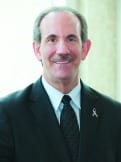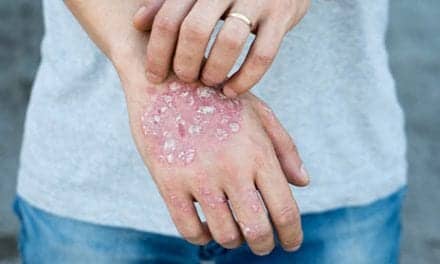By educating your clients, you can increase your skin care product sales and your profits

Selling home-use skin care products can provide up to 30% of your medical spa’s gross profits. Think about it: When a patient receives a botulinum toxin Type A injection treatment at your medical spa, he or she will likely visit your spa only three to four times per year at most. However, if the same patient is also using your spa’s private-label line of skin care products, he or she will likely purchase products from you every month.
Selling Guidelines
The goal of every medical-spa owner or manager should be to sell skin care treatments and cosmetics based on a customized regimen. Here are some guidelines and benefits:
• Patients need to know their skin types to select the best products for the desired results. On-site medical-spa educators should provide this basic information.
• To ensure product efficacy, patients need proper application instructions. Be sure your staff has solid cosmetic-application expertise and can teach patients how to use the products.
• Have a program in place to help your staff educator educate the patients. Patients benefit from being well-educated about the importance of combining on-site medical-spa treatments with the consistent and proper use of home-based skin care products.
• Instruct patients about why they should buy high-quality products, such as those sold in your private-label line, rather than over-the-counter products that contain fewer active ingredients and thus more inactive—and possibly harmful—ingredients. Educate your staff about the benefits of buying high-quality products so that they can easily articulate these benefits to the patients.
• Remind your staff that regular purchases of skin care products create great customer loyalty and are more likely to result in referrals by the patient, because—like a good movie—patients enjoy talking about their products before they discuss their procedures.
Involve the Buyer
A recent survey sponsored by the Society of Dermatology Skincare Specialists (SDSS) showed that most people are woefully unprepared to make skin care product-purchase decisions on their own. Only one in three of those surveyed actually sought the advice of an aesthetician or a physician before purchasing products, and many who self-treated often sought advice from unqualified people, like their family and friends. In many cases, those who self-treated actually made their skin conditions worse.
“We recommend that each patient be asked to bring in their current skin care products at their first visit so that the treatment they will receive will not be undermined by the regimen they are following,” says Anca Saladie, skin care product-development expert for Beautiful Forever Consulting (Englewood Cliffs, NJ).
To educate patients about skin care products and cosmetics, and increase sales, make them part of the medical-spa experience from the beginning. Have tester units available for display and use in the waiting room. Also, provide easy-to-understand brochures that summarize the menu of home care products that complement the medical-spa treatments, as well as personalized instruction booklets and makeup-application handouts.
New Developments
Many new developments in cosmetics are on the market today: all-natural, mineral-based products that contain natural sun-protection factor properties; as well as products with unique formulas to repair skin cells—like DNA formulas—with all the glamour properties of traditional products. These products can be more compatible than conventional ones with patients’ skin types and skin care regimens, and with their medical spa treatments. By selling these types of cosmetics, you will have total input on your patients’ skin care regimens.
Many medical spas now sell post-treatment camouflage makeup as well as mineral-based cosmetics for everyday use. If a patient is having a surgical or aesthetic procedure on a particular area, give him or her information about special makeup products that will cover and soothe it.
Do It Privately
Private label is an option offered by manufacturers that enables you to place your name and logo onto their existing product lines. Choosing this option will help you realize cost savings because you do not have to source for containers and fillers. Many manufacturers will also allow you to provide your own label artwork or will take your name and logo and create a label for you.
A well-developed private-label line will increase revenue, create customer loyalty, and generate referrals. The recurring purchases that do not require treatment can be very lucrative because, by using a private-label product line instead of a name-brand product line, your revenue will increase substantially. The markup on private-label products can be 300% or more, depending on what the market will support.
Increasingly, physicians are choosing to offer their own private-label product lines. To create their custom lines, they work with a designer to choose the bottle and filler, and then design the packaging around these two components. This truly establishes a unique brand and enables them to develop their own look and feel from the start.
There are some disadvantages to having a custom private-label line, however. The up-front costs (initial sourcing, creative, and development) are higher with custom labeling. Design firms specialize in this process because it is regulated and detailed-oriented.
In the end, though, this solution is the most cost-efficient and it generates the greatest return on investment. More importantly, this process results in a unique, branded identity for your skin care center or medical spa.
By educating patients to buy your brands of custom cosmetics or skin care products, they will know that they must return to you—as opposed to going online, for example—to repurchase them. Compounding pharmacies make it possible for physicians to purchase already-compounded prescription skin care products. By manufacturing your own private-label line, you will create an additional revenue stream that would otherwise go to a pharmacy.
Finally, there is one more option. You can elect to custom compound right there at your medical spa. It is very easy, and it is considerably more profitable.
Good skin care and makeup products can sometimes be costly. However, aren’t we a society that values the goals of optimum health and long-lasting youth and beauty?
Cheryl Whitman, a beauty-industry consultant for more than 20 years, is the founding board member of the Medical Spa Society and an active member of the Day Spa Association. She is the CEO of Beautiful Forever, a nationwide medical-spa consulting firm. You can reach her at (201) 541-5405 or via her Web site, www.medicalspaconsultant.com




